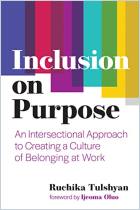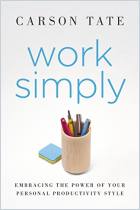Melden Sie sich bei getAbstract an, um die Zusammenfassung zu erhalten.

Melden Sie sich bei getAbstract an, um die Zusammenfassung zu erhalten.
Alan Henry
How to Succeed When You’re Marginalized or Discriminated Against at Work
The New York Times, 2019
Was ist drin?
No productivity hack in the world will help you if your work goes unnoticed.
Recommendation
Self-help books and business gurus offer an abundance of productivity tips: Check your emails no more than twice a day. Avoid unnecessary meetings. Delegate menial tasks to someone else. However, what if you face judgment for doing these things because of who you are? Or if your enhanced productivity goes unnoticed? Every day, women and people of color fight stereotypes that claim they’re unmotivated or otherwise incapable of succeeding in the workplace. New York Times editor Alan Henry discusses how they – and people from any marginalized group – can save time to focus on what really matters to them.
Summary
About the Author
Alan Henry is editor of The New York Times’ “Smarter Living” section. He was formerly the editor in chief of the Lifehacker website.



















Comment on this summary